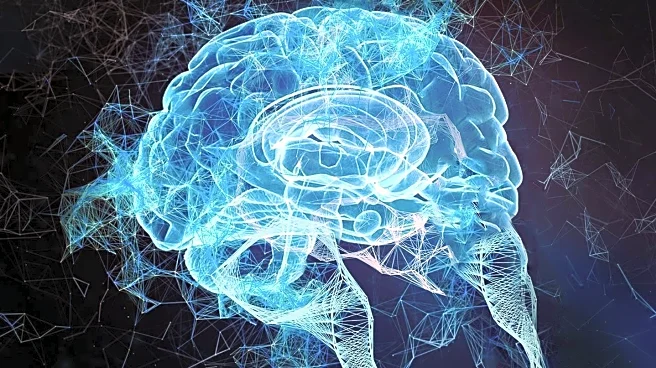What's Happening?
John Hopkins University scientists have developed a miniature human brain, known as an organoid, using stem cells. This organoid is designed to mimic the functions of human organs and serves as a platform for studying diseases and testing new drugs. The creation of such organoids has led to discussions among scientists about the potential for these lab-grown brains to develop consciousness. A recent poll by Live Science revealed that 23% of respondents believe there is no ethical justification for experimenting on potentially conscious organoids. The poll also showed that opinions are divided, with some supporting experimentation under strict regulations and others advocating for continued research on unconscious organoids.
Why It's Important?
The development of lab-grown human brains raises significant ethical questions about the potential for consciousness in organoids. If these organoids were to develop sentience, it could lead to a reevaluation of current scientific practices and regulations. The debate touches on fundamental issues of human rights and the moral implications of creating life forms that could experience pain or fear. This development could impact the fields of neuroscience, bioethics, and medical research, potentially leading to new guidelines and policies governing the use of organoids in scientific studies.
What's Next?
As research on organoids continues, scientists and ethicists will likely engage in further discussions to address the ethical implications of potentially conscious lab-grown brains. Regulatory bodies may need to establish new guidelines to ensure the ethical treatment of organoids, particularly if they show signs of consciousness. The scientific community will need to balance the potential benefits of organoid research in understanding diseases and developing treatments with the ethical considerations of creating and experimenting on sentient life forms.
Beyond the Headlines
The creation of lab-grown human brains could lead to long-term shifts in how society views consciousness and the definition of life. This development may prompt broader discussions about the ethical boundaries of scientific research and the responsibilities of scientists in creating and experimenting with life forms. The potential for organoids to develop consciousness could also influence public perception of scientific advancements and the role of ethics in guiding research.








